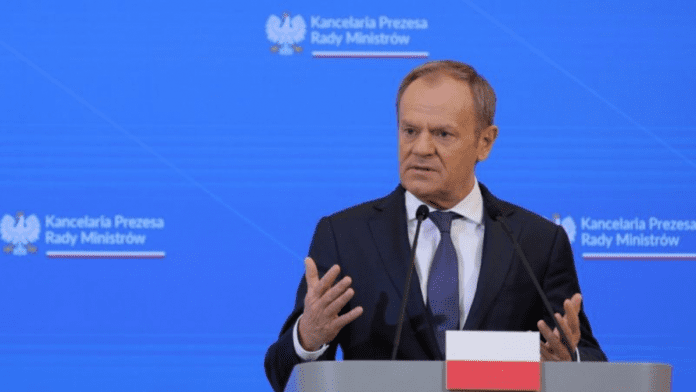News in Brief:
– Poland Prime Minister Donald Tusk is negotiating with Ukraine to address the surge in agri-food imports causing market destabilisation, proposing a temporary border closure as a solution.
– Tusk emphasises the urgency of rebalancing trade dynamics to safeguard local farmers’ interests, amidst protests, while rejecting extreme measures and advocating for collaborative, nuanced solutions.
Polish Prime Minister, Donald Tusk, is spearheading negotiations with Ukraine to address the escalating tensions surrounding agricultural trade. The surge in Ukrainian agri-food imports has left Polish farmers grappling with market destabilisation.
Tusk aims to alleviate the situation by temporarily closure of the border between Poland and Ukraine, a move he acknowledges as painful but necessary for both nations.
According to a statement obtained by the press, Tusk highlighted the staggering surplus in European and Polish grain stocks, emphasising the urgency of the issue. Poland aim to rebalance trade dynamics to safeguard local farmers’ interests.
Farmer protests and EU concerns
Last month, thousands of farmers converged in Warsaw to protest against the European Green Deal and the influx of Ukrainian imports. While some demanded Poland’s withdrawal from the union others pushed for complete border closures. Tusk had dismissed these extreme measures earlier as he advocates for dialogue and collaborative solutions.
Andrzej Danielak, representing Polish farmers, criticised the European Commission’s decision to suspend import duties on Ukrainian exports, citing its adverse impact on market predictability. Former EU official, Plewa, echoed concerns over the influx of Ukrainian imports but emphasised the broader context of global grain prices and the need for nuanced solutions.
Tusk’s approach encourages cooperation with Kyiv to address trade imbalances effectively. While acknowledging farmers’ grievances, he seeks to avoid unilateral actions that could escalate tensions. The proposed renewal of trade benefits for Ukraine, coupled with safeguards to manage import volumes, presents a potential path forward in resolving the crisis.



